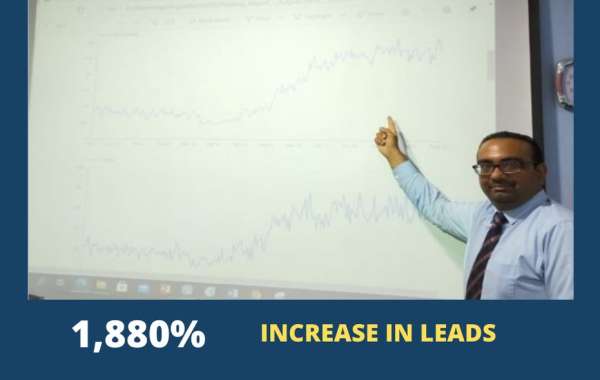Search engine optimization (SEO) remains a critical component of online success. As businesses increasingly rely on digital visibility, understanding and addressing common SEO challenges has become paramount for any SEO services provider or SEO company looking to deliver tangible results for their clients.
The digital marketing ecosystem is fraught with complexities that can significantly impact a website's search engine performance. From technical issues to content-related challenges, organisations often find themselves struggling to maintain and improve their online presence. This comprehensive exploration will delve into the most prevalent SEO problems and provide actionable strategies to overcome them, helping businesses and digital marketers navigate the intricate world of search engine optimization.
The Technical Foundation: Addressing Structural SEO Issues
At the core of effective search engine optimization lies a robust technical infrastructure. Many websites unknowingly harbour technical issues that can severely hamper their search rankings. Site speed, for instance, is a critical factor that many best SEO companies emphasise as a fundamental performance indicator.
Slow-loading websites not only frustrate users but also receive poor treatment from search engine algorithms. Page load time directly impacts user experience and bounce rates, creating a cascading effect on search rankings. To address this, businesses must conduct comprehensive performance audits, optimize image sizes, leverage browser caching, and minimise unnecessary scripts and plugins.
Mobile responsiveness presents another significant technical challenge. With mobile devices now accounting for the majority of internet traffic, search engines prioritise mobile-friendly websites. An ecommerce SEO company would quickly point out that non-responsive designs can dramatically reduce search visibility and user engagement. Implementing responsive design, ensuring consistent functionality across devices, and optimizing mobile page speeds are crucial steps in resolving this issue.
Content Complexity: Quality Over Quantity
Content remains the cornerstone of effective SEO, yet many organisations struggle to create truly compelling and search-friendly material. Keyword stuffing, a practice that was once prevalent, now actively damages search rankings. Modern SEO demands nuanced, high-quality content that provides genuine value to readers while strategically incorporating relevant keywords.
The most successful digital strategies focus on creating comprehensive, authoritative content that addresses user intent comprehensively. This means understanding the questions your target audience is asking and providing in-depth, well-researched answers. Long-form content that explores topics thoroughly tends to perform better in search rankings, as it demonstrates expertise and provides substantial value.
Another common content-related challenge is duplicate content, which can confuse search engine algorithms and dilute ranking potential. Websites must ensure unique, original content across all pages, implementing canonical tags when necessary to help search engines understand content relationships and prioritisation.
Navigating Link Landscapes: Building Authentic Authority
Link building remains a complex and often misunderstood aspect of SEO strategy. While backlinks continue to be a crucial ranking factor, the quality of these links matters far more than sheer quantity. Many organisations fall into the trap of pursuing low-quality, spammy link-building techniques that can result in search engine penalties.
The most effective link-building strategies focus on creating genuinely valuable content that naturally attracts high-quality, relevant backlinks. This involves developing comprehensive resources, engaging in meaningful industry collaborations, and establishing thought leadership within your specific domain.
Guest posting, when done authentically and strategically, can be an excellent method of acquiring high-quality backlinks. However, it requires a discerning approach—focusing on reputable platforms within your industry and providing genuine, valuable content rather than generic, link-laden articles.
Technical SEO: The Hidden Performance Determinant
Beyond content and links, numerous technical elements can significantly impact search performance. Crawlability and indexing represent fundamental challenges that many websites overlook. Search engines must be able to efficiently discover, crawl, and understand your website's content.
XML sitemaps play a crucial role in this process, providing search engines with a clear blueprint of your website's structure. Regular audits of these sitemaps, ensuring they accurately represent your current site architecture, can dramatically improve indexing efficiency.
Broken links, redirects, and crawl errors represent additional technical challenges that can undermine SEO performance. Implementing robust monitoring systems and conducting regular technical audits can help identify and resolve these issues before they significantly impact search rankings.
Schema Markup: The Semantic Solution
Structured data and schema markup offer another sophisticated approach to improving search visibility. By providing search engines with explicit information about your content's context and meaning, you can enhance rich snippet appearances and potentially improve click-through rates.
Implementing appropriate schema markup requires technical expertise but can yield substantial benefits across various content types, from product pages to articles and event listings. The additional context helps search engines more accurately understand and represent your content in search results.
User Experience: The Holistic SEO Approach
Modern SEO transcends traditional technical optimizations, embracing a holistic approach that prioritises user experience. Search engines have become increasingly sophisticated in measuring user engagement metrics, considering factors like time on site, bounce rates, and interaction patterns.
This means that SEO is no longer just about appeasing search algorithms but creating genuinely valuable, user-centric experiences. Websites must focus on intuitive navigation, clear information architecture, and content that directly addresses user needs and intentions.
Continuous Learning and Adaptation
Perhaps the most critical strategy for overcoming SEO challenges is maintaining a mindset of continuous learning and adaptation. Search engine algorithms evolve constantly, and successful digital strategies require ongoing education, experimentation, and refinement.
Regular performance analysis, staying informed about industry trends, and being willing to pivot strategies based on data-driven insights are essential. No single approach guarantees perpetual success; instead, flexibility and a commitment to understanding emerging best practices will distinguish top-performing digital strategies.
A Strategic Approach to SEO Excellence
Navigating the complex world of search engine optimization requires a multifaceted approach. By understanding and systematically addressing technical challenges, content limitations, and user experience considerations, businesses can develop robust SEO strategies that drive meaningful digital success.
The journey toward search engine optimization excellence is ongoing, demanding patience, expertise, and a commitment to delivering genuine value. Those who approach SEO as a holistic, strategic endeavour—rather than a series of tactical manoeuvres—will ultimately distinguish themselves in an increasingly competitive digital landscape.








